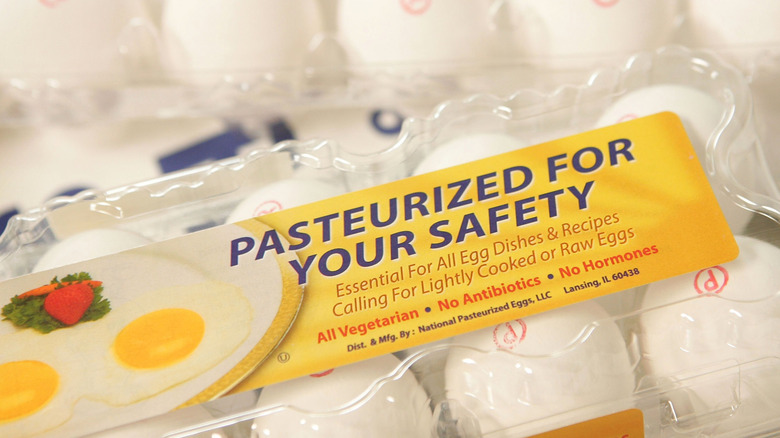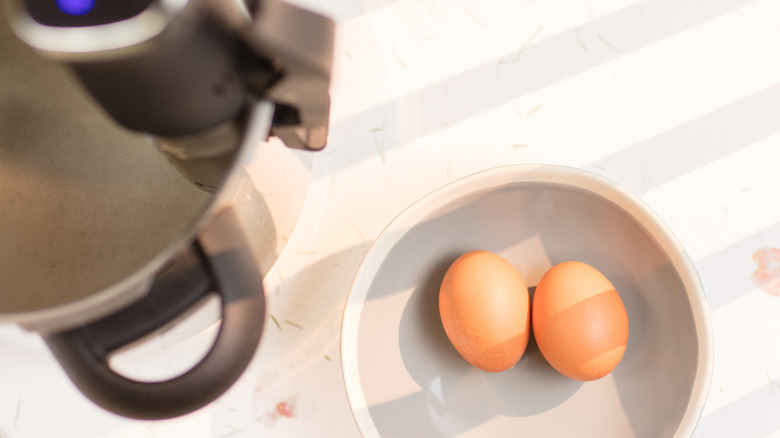Can You Pasteurize Eggs At Home And Is It Even Safe?
With some restaurants tacking on extra charges for egg dishes and the United States leaning on egg imports to make up for shortages, people might be looking for ways to take egg supplies into their own hands. However, not all egg products can or should be produced at home. For example, pasteurized eggs, or eggs that have been heated to kill bacteria, are commonly sold at grocery stores but aren't the safest or easiest to produce in a home setting.
The United States Department of Agriculture explains that eggs are usually pasteurized using a processor and other pieces of equipment that are not available for home use. That being said, there are some ways to pasteurize eggs at home without this equipment, but they aren't perfect. Because of this, if you try to make pasteurized eggs at home, you run the risk of not properly pasteurizing them. So, while it is possible to pasteurize eggs at home, doing so is not the safest option.
Why is pasteurizing your own eggs risky?
While both whole and shelled eggs can be pasteurized, most people only want to pasteurize the former. These people often turn to the sous vide method. Despite sounding fairly complicated, sous vide cooking is surprisingly simple. It involves placing food in an airtight bag and submerging it in water to be cooked at a specific temperature using the sous vide machine. To pasteurize whole eggs they must be submerged in water and the internal temperature must stay between 130 to 140 degrees Fahrenheit for at least 60 minutes. Sounds simple, right?
Even with an immersion circulator, which allows you to set the temperature of the water exactly, these eggs will not be as safe as those pasteurized commercially. This is because commercially available pasteurized eggs are much more closely monitored throughout their production. Doing this at the same level, with the same standardization, just isn't achievable in a home setting. Human error is always a bigger risk at home, and you have to trust that your own home devices and thermometers are reading completely accurate temperatures at all times.
If the eggs drop below that temperature range at any point during the process, they have not been properly pasteurized and are not safe for consumption. Of course, you likely won't know that and may consume the raw eggs anyway. If you do, you run a serious risk of contracting foodborne illnesses like salmonella. For this reason, we think that, while the country's egg situation is strained, it's still best to leave pasteurization to the professionals.

